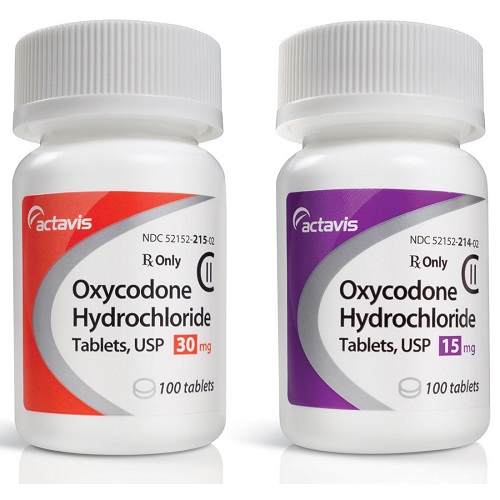Description
Pregabalin tablets are commonly used to relieve pain that occurs in arms, fingers, hands, toes, feet, or legs in diabetic or postherpetic neuralgia (PHN) patients. Pregabalin is one of the prescription drugs commonly used to treat pain that can happen due to spinal cord injury or seizures. It is considered one of the best anticonvulsants available in independent pharmacies after approval by the FDA. Buy pregabalin online now
The tablet is used for the following health issues:
- Fibromyalgia (muscular pain, changes in mood, sleep complications, and fatigue)
- Any pain from shingles, diabetes, or spinal cord injury.
Unofficial or off-label uses may include:
- Anxiety
- Back pain
- Migraines
How effective is Pregabalin?
The effectiveness of Pregabalin may vary from condition to condition for which the medication is being used.
- For epileptic seizures, Pregabalin may be able to reduce the effects for most patients. Depending upon the intensity of the seizure, most patients can reduce effects by 50% after taking Lyrica.
- For fibromyalgia, Pregabalin has helped improve quality of life by improving sleep patterns and reducing musculoskeletal pain.
- For neuralgia, Pregabalin has been an effective form of medication. Be it diabetic neuropathy, postherpetic neuralgia, or central nerve pain, Pregabalin is a reliable form of treatment.
Dosage instructions
Pregabalin comes in various strengths, and the dose of the medicine may vary from person to person, depending on one’s strength, tolerance, and medical condition. Seeking medical assistance by consulting a healthcare professional on your dosage is the best option to prevent any adverse side effects.
Dose for onset seizures
- Adult dosage (18 to 64 years) varies from a usual dose of 150mg daily to the maximum dosage limit of 600mg in 2 to 3 divided doses.
- Pediatric dosage (4 to 17 years) varies according to age and weight. For children weighing from 11 to 30kg, 3.5mg/kg can be divided throughout the day, whereas, for children weighing 30kg or more, 2.5mg/kg can be divided throughout the day. The maximum dose should not exceed 10 mg/kg (600mg) a day.
- Senior dosage (65 years and above) depends on the medical condition and history of the individual patient.
Dose for fibromyalgia
- Adult dosage (18 to 64 years) varies from a standard dose of 75mg twice daily to 450mg maximum.
- Senior dosage (65 years and above) depends on the individual patient’s medical condition, body reaction, and history.
Dose for neuropathic pain
- Adult dosage (18 to 64 years) from a regular dose of 75mg twice daily to 600mg maximum.
- Senior dosage (65 years and above) depends on the medical condition and history of the individual patient. However, doses are lower as compared to an average adult.
Dose for diabetic peripheral neuropathy
- Adult dosage (18 to 64 years) from a regular dose of 50mg thrice a day to 300mg maximum.
- Senior dosage (65 years and above) depends on the medical condition and history of the individual patient. The dosage has more to do with the tolerance of the individual.
Patients with pre-existing liver or kidney problems and breathing problems should consult their doctor before taking Lyrica. Pregabalin may cause heart problems in patients with diabetic neuropathy.
Why is Pregabalin considered a good treatment for pain relief?
Pregabalin is considered one of the best treatments for pain relief because it has little or no significant adverse effects and offers management of severe nerve pain. The medication is extraordinarily efficacious as it controls seizure activity. Moreover, Pregabalin may also help children who suffer from partial seizures.
Even the off-label benefits of the drug are impressive. Pregabalin helps manage anxiety, back pains, and alcohol withdrawal symptoms.
Pregabalin vs Gabapentin – What Is The Difference?
There are not many medications that can come close to comparing to either of these two medicines as both are incredibly potent, highly effective and generally very safe for use. Gabapentin, which is well-known under the brand name of Neurontin, is the progenitor to Lyrica and it is also an anticonvulsant remedy.
Both of these medicines have a very similar molecular structure which is akin to the naturally produced inhibitory gamma-aminobutyric acid (GABA) neurotransmitter found inside our brains and central nervous systems (CNS). The first point of comparison lies in comparing all of the pregabalin 300 mg uses with that of gabapentin’s. While both of these remedies are incredibly useful, gabapentin is not recommended for the treatment of as many medical conditions as its counterpart – it does, however, have more off-label uses.
While both of these treatments are highly potent, gabapentin is the weaker of the two and requires higher dosages to achieve the same results. Finally, although they are both very safe medicines, gabapentin has been known to cause more side effects and unlike its counterpart, it is not safe for use in breastfeeding mothers.
What are the side effects of Pregabalin?
Although Pregabalin is considered a safe drug for pain management, some common side effects exist that 10% of users may experience. Slightly severe side effects were only found in users taking Lyrica non-suitable dosages or ignoring a contraindicated state. Therefore, staying in touch with your medical expert is always advisable; you get help when needed.
Common side effects:
- Nausea
- Headaches
- Sleepiness
- Blurry vision
- Dizziness
- Weight gain
- Trouble concentrating
- Fever
- Dry mouth
- Upset Stomach
- Constipation
Severe side effects:
- Allergic reactions (skin redness or rash, swelling of tongue, throat, etc.)
- suicidal thoughts
- Eye problems
- Fluid retention
- Irregular heartbeat
FDA warns that Pregabalin may cause breathing problems in patients with respiratory risk factors. Contact your doctor immediately if you experience trouble breathing or an allergic reaction, and stop taking Lyrica. With proper preventative measures, side effects can be avoidable in most cases. However, lingering side effects may require the help of a medical expert.
Why buy Pregabalin from Discreet People?
Discreet People pharma is a reputed medicine vendor today. The medications available here are a hundred percent genuine. At Discreet People, you can get various offers that will make the purchase very affordable. You can make the purchase effortlessly. Track your order, return and refund it as well. The website sells only FDA allowed drugs. So, all the drugs sold here are purely safe. Moreover, the website sells generic as well as branded medications.
Buy Pregabalin Online Without a Prescription
When anxiety is derailing your life, when pain has left you in unbearable agony or when constant seizures have proven to be the bane of your existence, you should know where you can buy pregabalin tablets from in order to find the long-awaited relief that you have been looking for and deserve. When you visit our respected online pharmacy that operates throughout USA, UK, you will have found the simplest and most convenient way to buy pregabalin in the USA, UK
We believe in a simple truth: that people who are already suffering from any medical issue should not be made to labor further over their necessary medicines nor spend copious sums of money just to cope. We have achieved our goal of making healthcare more convenient and accessible to all by allowing our customers to buy pregabalin medication in the USA, UK with the utmost of ease and at the most affordable prices too.
Your freedom from your pains, worries and epileptic fits is now just a click or two away and if you encounter any issues while using our website, you can contact our helpful customer care agents who are available throughout each day and night.
FAQs
Who can use Pregabalin?
The medication can be used for various disorders. One must use this medication only when a doctor prescribes it to you. Do not start or stop the medication on your own will. Pregabalin can help cure extreme pain. This pain may be caused due to surgeries, seizures, injuries, etc.
People who have experienced nerve damage due to diabetes, slip disk or any other medication can use this medication. The medication is also helpful for people with spinal cord injuries. It can also help in reducing the pain caused by seizures.
The medication is safe for people above the age of 18 and below 65. Children from age 4 to 18 can also make the use of this drug. however, a doctor’s consultation is a must in this condition. Your doctor or specialist will suggest the right dosage for your child. Do not use the medication on your own.
When should I take Pregabalin?
Pregabalin can be taken for seizures or neuropathic pain. The drug can be taken twice or thrice a day, depending upon the overall dosage the individual’s doctor prescribes. The drug can be taken with or without food. The best time to take Pregabalin is right after an evening meal. If the drug is in tablet form, one must swallow it directly.
How Pregabalin treats Anxiety?
Pregabalin is an anti-convulsant medication. The drugs that fall in this category work the same way. As far as the working of Pregabalin is concerned, not much is known about it. This medication works on the pain receptors of the brain. It induces calmness, relieves anxiety by blocking any alarming signals. This gives the pain an image of serene and calmness. Thus, helps in reducing the anxiety in the end.
How long does it take Pregabalin to work?
Although Pregabalin may start working immediately after taking, the results might vary from person to person. It may even take several weeks for some users to experience relief. Ideally, the drug takes two months to build up within a body and give optimum results. Within two to four weeks, a person might feel better in pain.
Can I take Pregabalin in pregnancy?
Pregabalin or any other Gabapentinoids should be avoided during pregnancy until or unless it is the last option after the advice of a medical expert or gynecologist. There is limited information on whether Pregabaline is safe during pregnancy or not. The drug may cause complications during pregnancy.
Can I drive after taking Pregabalin?
Depending upon the dose and how it reacts within an individual’s body, Pregabalin may cause double or blurred vision, unsteadiness, laziness, clumsiness, drowsiness or dizziness. It is not advisable to perform any activity or drive after consuming the drug, especially if taken the first time.
How long can I take Pregabalin?
Pregabalin is used as a long-term pain management medication. You can take Pregabalin for as long as you have nerve pain; however, the drug needs to be reviewed every six months by a medical expert to prevent lingering or severe side effects.
Does long-term use of Pregabalin have adverse effects on my health?
Taking Pregabalin for a long time without consulting a medical expert may adversely affect one’s health. The drug might even stop working, or the individual may become an addict leading to withdrawal symptoms once the consumption of the drug is stopped.
Is smoking safe after taking Pregabalin?
Smoking is not a healthy habit. One may not witness its side effects immediately, however, it can be fatal in the wrong run. However, as far as the interaction of Pregabalin with tobacco is concerned, there is not any specific restriction. However, one must stay away from the excessive use of tobacco.
Can Pregabalin be taken on an empty stomach?
You can take the medication as per your convenience. Take the medication as it suits you. Some people feel nausea if medicine is taken after food. So, there are no set rules, one must take the medicine as per personal convenience.







Reviews
There are no reviews yet.